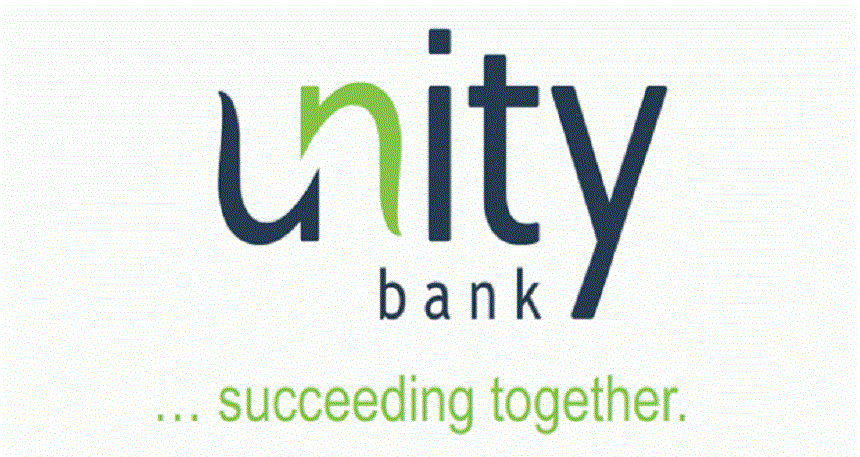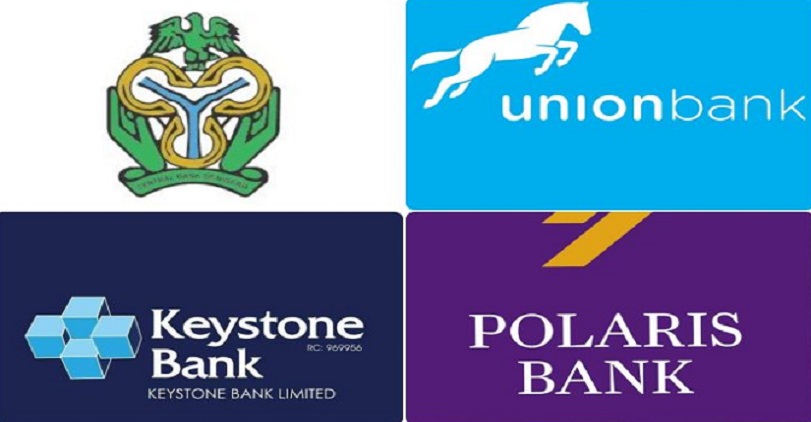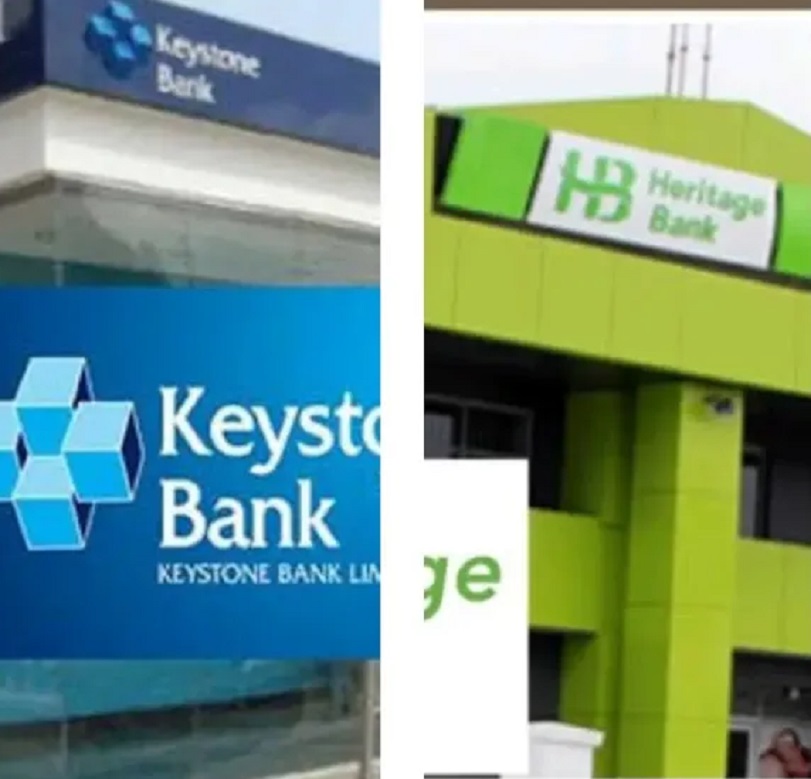Banking
Keystone Bank: Emerging Whiz-kid on the Banking Block

By Felix Onajite
Since the financial crisis that enveloped the global market a decade ago, the profitability and reputation of banks has been under tremendous pressure worldwide, Nigeria inclusive. Whilst the banking industry is now regaining its health, the entrant of fintechs and neo-banks in the industry is posing a new threat. This digital disruption is changing the traditional way through which customers obtain financial services, hence putting more pressure on banks’ profitability.
However, a bank in Nigeria, Keystone Bank Ltd, is challenging the status quo by making transformation and profitability appear like a mere walk over as revealed in its achievements within a short time span.
From the perspective of the results on ground, it appears to be a great time for Keystone Bank. In just one year of AMCON’s divestment, the bank has changed its narrative from “one of those banks” to a financial institution to be reckoned with and as a result is experiencing an influx of business minded customers.
Keystone Bank’s ambitious and holistic transformations have taken industry watchers by surprise, and the industry itself by storm.
Besides the revamping of its branches across the nation and bolstering its workforce, it has invested substantially in technology and developed fully integrated service models that enable its customers enjoy banking services through a wide range of channels.
The bank’s journey to reckoning had been long and winding, which necessitated a takeover by the Asset Management Company of Nigeria (AMCON) in 2011.
However, its acquisition by Sigma Golf – Riverbank consortium seemed to trigger a turnaround as it precipitated a change in the management team to the one that holds the magic wand for the positive outlook it has been experiencing to date
On taking over, the new management team led by its Group Managing Director/CEO, Mr Obeahon Ohiwerei, drew up a holistic and integrated approach to business modernization which elevated the bank to deliver a superior customer-centric experience. The impact of this change reflected positive results in its Q1 report card, which, from all indications, is a restoration of customers’ trust in its system.
The bank, for the half-year ended June 30, 2018, recorded a profit before tax of N5.83 billion, compared to a loss of N6.78 billion over the same period in 2017. Deposit grew by 51 percent, from N206 billion to N312 billion between June 2017 and June 2018.
From evolving technologies to changing customer expectations to new regulatory demands – it has never been more important for banks to come up with the right strategies for digital transformation and innovation; the Mr Ohiwerei team nonetheless made this a reality at Keystone Bank. This entailed initiating partnership processes with foremost technology-enabled concerns to drive its digital revolution.
Its partnership with CeLD Innovations Limited to launch a ground-breaking loyalty reward initiative which involves the gifting of ‘CashToken’, is one of such moves. This innovative gift commodity, Cash Token, which was formally launched in Lagos on Thursday April 19, 2018 at a conference tagged “500 Top CEOs Conference – Unleashing – The Age of Hyper Consumer Centricity, is an electronic reward and celebratory gift commodity which costs only N30.
The initiative, according to CeLD, creates a chance for every customer in Nigeria to win life-changing cash rewards every Friday night on the National CashToken draws which is monitored by Alexander Forbes and audited by Deloitte. This initiative is designed to optimize customer loyalty investment for business, celebratory gift value optimization and public emotional equity for government.
The bank has also launched its revamped mobile banking application upgraded with new and exciting user-friendly features for a more convenient banking experience. Customers can now enjoy many benefits & access self-service options, such as, easy account opening, convenient self- booking and liquidation of fixed deposits, an expanded list of bill-payment options and easy activation of standing instructions & recurrent future payments.
Other notable features of the mobile App are, a “Switch Card ON/OFF option” which allows users to disable their cards temporarily if missing & re-enable at the click of a button, the “Hide Balance Feature” safeguards against third-party viewing and the “Meet Your Relationship Manager Option” allows users to call or email their account officers right within the app.
In addition, the Bank was the first in the sector to introduce the Chat-bot feature called OXYGEN which enables banking on Telegram and Facebook. It guides users through a whole range of desired transactions step-by-step.
Another first from the Bank is the Zero Data Banking feature that enable customers transact on their phones without data. Keystone Bank has remained the only Bank with this feature on its Banking App.
And for the first time in its operations, Keystone Bank also introduced a new SMART number for customer support, this eliminates the need for customers to remember multiple numbers while removing the uncertainty as to which of the lines are actively engaged.
These and many other moves leveraging technology and building a culture of innovation is fast repositioning the bank as a new whiz kid on the banking block, which, according to its Group Managing Director, Mr Obeahon Ohiwerei is a proof of the hard work and resilience of the board, management and staff of the bank.
Today, Keystone Bank’s branches are fast becoming a hub for transactional activities witnessing a huge footfall of customers trooping in to carry out transactions, open bank accounts and experience the innovative trends that the bank has introduced to its business. This overall experience has also been boosted by the enhancement of staff morale which inherently drives the commitment to serve their customers better.
From the look of unfolding events at Keystone Bank, it’s clear to see that, it’s just a matter of time before the bank starts operating in the first tier again.
Felix Onajite, a financial analyst, writes from Lagos, Nigeria.
Banking
Public Offer: Sterling Holdco Allots 13.812 billion Shares to 18,276 Shareholders

By Aduragbemi Omiyale
Sterling Financial Holdings Company Plc has allotted shares from its public offer of 2025 to investors with valid applications.
The allotment follows the earlier receipt of final approval from the Central Bank of Nigeria (CBN) and the recent clearance by the Securities and Exchange Commission (SEC).
In September 2025, the financial institution offered for sale about 12,581,000,000 ordinary shares of 50 kobo each at N7.00 per share in public offer.
However, the exercise received wide participation from the investing public, with the company getting 18,280 applications for 16,839,524,401 ordinary shares valued at approximately N117.88 billion.
Following a thorough verification process, valid applications were received from 18,276 shareholders for a total of 13,812,239,000 ordinary shares, representing a subscription level of 109.79 per cent and reflecting sustained confidence in Sterling Holdco’s strategic direction, governance, and long-term growth prospects.
The firm approached the capital market for additional funds for the recapitalisation of its two flagship subsidiaries, Sterling Bank and The Alternative Bank.
The capital injection will support the commencement of full operations and contribute to the group’s revenue diversification objectives.
In line with the guidelines set out in the offer prospectus, Sterling Holdco confirmed that all valid applications will be allotted in full. Every investor who complied with the terms of the offer will receive all the shares for which they applied.
A very small number of applications were not processed or were partially rejected due to non-compliance with the offer terms, including duplicate payments and failure to meet the minimum subscription requirement of 1,000 units or its multiples, as stipulated in the offer documents.
The group ensures a seamless post-offer process, with refunds for excess or rejected applications, along with applicable interest, to be remitted via Real Time Gross Settlement or NIBSS Electronic Funds Transfer directly to the bank accounts detailed in the application forms.
Simultaneously, the electronic allotment of shares has be credited to successful shareholders’ accounts with the Central Securities Clearing System (CSCS) on February 17, and for applicants who do not currently have CSCS accounts, their allotted shares will be temporarily held in a registrar-managed pool account pending the submission of their completed account opening documentation to Pace Registrars Limited, after which the shares will be transferred to their personal CSCS accounts.
Banking
CBN Governor Seeks Coordinated Digital Payment Reforms

By Modupe Gbadeyanka
To drive inclusive growth, strengthen financial stability, and deepen global financial integration across developing economies, there must be coordinated reforms in digital cross-border payments.
This was the submission of the Governor of the Central Bank of Nigeria (CBN), Mr Olayemi Cardoso, at the G‑24 Technical Group Meetings in Abuja on Thursday, February 19, 2026.
According to him, high remittance costs, settlement delays, fragmented systems, and heavy compliance burdens still limit the participation of households and Micro, Small and Medium Enterprises (MSMEs) in global trade.
The central banker emphasised that efficient payment systems are essential for economic inclusion, highlighting that global remittance corridors still incur average costs above 6 per cent, with settlement delays of several days, excluding millions from modern economic activity.
Mr Cardoso cautioned that while digital payments present significant opportunities, they also carry risks such as currency substitution, weakened monetary transmission, increased FX volatility, capital-flow pressures, and regulatory fragmentation.
The G-24 TGM 2026, themed Mobilising finance for sustainable, inclusive, and job-rich transformation, convened global financial stakeholders to advance the modernisation of finance in support of emerging and developing economies.
The CBN chief reaffirmed Nigeria’s commitment to working with G-24 members, the IMF, the World Bank Group, and other partners to build a more inclusive, resilient, and development-oriented global financial architecture.
“We have strengthened our AML/CFT frameworks in line with FATF guidelines, requiring strict dual-screening of cross-border transactions to mitigate risks.
“To deepen regional integration, the CBN introduced simplified KYC/AML requirements for low-value cross-border transactions to encourage broader participation in PAPSS, easing processes for Nigerian SMEs and enabling faster intra-African trade payments.
“We have also embraced fintech innovation through our Regulatory Sandbox, allowing payment-focused fintechs to test secure, instant cross-border solutions under close CBN supervision,” he disclosed.

Banking
Unity Bank, Providus Bank Merger Awaits Final Court Approval

By Modupe Gbadeyanka
The merger and business combination between Unity Bank Plc and Providus Bank Limited remains firmly on course, a statement from one of the parties disclosed.
According to Unity Bank, there is no iota of truth in reports in certain sections of the media suggesting that the merger process had stalled, as the transaction remains firmly on track.
It was disclosed that the necessary regulatory steps have been completed, but only a few other steps to finalise the transaction, especially the final court sanction.
There had been speculations that both lenders may not meet the new minimum capital requirement of the Central Bank of Nigeria (CBN) before the March 31, 2026, deadline.
However, it was noted that the combined capital base of Unity Bank and Providus Bank exceeds N200 billion, which is the minimum requirement to retain a national banking licence under the CBN’s recapitalisation framework.
When completed, the Unity-Providus merger is expected to deliver a stronger, more competitive, and customer-centric financial institution — one with the scale, innovation, and reach to redefine the retail and SME banking landscape in Nigeria.
“The merger with Providus Bank significantly enhances our capital base, operational capacity, and strategic positioning.
“We are confident that the combined institution will be better equipped to support economic growth and deliver innovative financial solutions across Nigeria,” the chief executive of Unity Bank, Mr Ebenezer Kolawole, stated.
Recall that a few months ago, shareholders authorised the merger between the two entities at Court-Ordered Meetings. They also adopted the scheme of merger at their respective Extraordinary General Meetings (EGMs) in September 2025,
The central bank also backed the merger, with a pivotal financial accommodation to support the transaction. The merger also received a further boost with a “no objection” nod from the Securities and Exchange Commission (SEC).
The regulatory approvals form part of broader efforts to strengthen the resilience of Nigeria’s banking system, reinforce capital adequacy across the sector, and mitigate potential systemic risks.
The development positions the combined entity among the 21 banks that have satisfied the apex bank’s new capital threshold for national banking operations.
-

 Feature/OPED6 years ago
Feature/OPED6 years agoDavos was Different this year
-
Travel/Tourism10 years ago
Lagos Seals Western Lodge Hotel In Ikorodu
-

 Showbiz3 years ago
Showbiz3 years agoEstranged Lover Releases Videos of Empress Njamah Bathing
-

 Banking8 years ago
Banking8 years agoSort Codes of GTBank Branches in Nigeria
-

 Economy3 years ago
Economy3 years agoSubsidy Removal: CNG at N130 Per Litre Cheaper Than Petrol—IPMAN
-

 Banking3 years ago
Banking3 years agoSort Codes of UBA Branches in Nigeria
-

 Banking3 years ago
Banking3 years agoFirst Bank Announces Planned Downtime
-

 Sports3 years ago
Sports3 years agoHighest Paid Nigerian Footballer – How Much Do Nigerian Footballers Earn



















